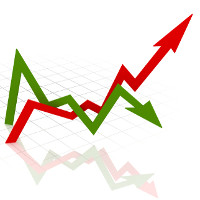 It seems that many families who having been “just holding on” in their unhappy marriages may start taking steps toward finalizing divorces soon, according to Bloomberg and other economic news sources. These sources are linking an increased divorce rate to an improving economy.
It seems that many families who having been “just holding on” in their unhappy marriages may start taking steps toward finalizing divorces soon, according to Bloomberg and other economic news sources. These sources are linking an increased divorce rate to an improving economy.
Looking back to 2009, the United States divorce rate hit a 40-year low, coinciding with what the media reported as the end of the recession. Yet, the 2012 data shows that the divorce rate is creeping back up, which could be a sign that the general public thinks the economy is improving.
The studies claim that families tend to hold on during rough economic periods, even if they are unhappy in their marriages. They fear that job prospects may not be readily available, so they need to delay divorce in order to stay financially afloat. When house values are down, no one wants to fight over a property in a divorce settlement that may be under water. So they stay married until they feel they are better equipped to handle the financial struggles that come with divorce.
However, research shows that, when divorce rates increase, the housing market fares better as a result. When families split, two homes are required instead of one. Two members of the family need larger incomes, which require more jobs. It becomes a sort of “chicken or the egg” conundrum.
Do divorce rates increase because the economy is improving? Or does the economy benefit from increased divorce rates? There may not be just a one-way correlation.
There were 2.4 million divorces in the United States in 2012, versus 840,000 in 2009.
Were people unhappy in their marriages because the economy was so bad? Did the financial struggles create dissention and discord, resulting in the higher divorce rate of the next few years?
Or, were unhappy people only holding on until the economy get better to get out of their unhappy marriages?
There is no clear answer or proven catalyst to the equation. Instead, we simply look at the numbers and recognize the significant increase in divorce over the past few years, and watch home values and other parameters go up as well. Whether the egg came first or the chicken, both are seeing an upswing.
